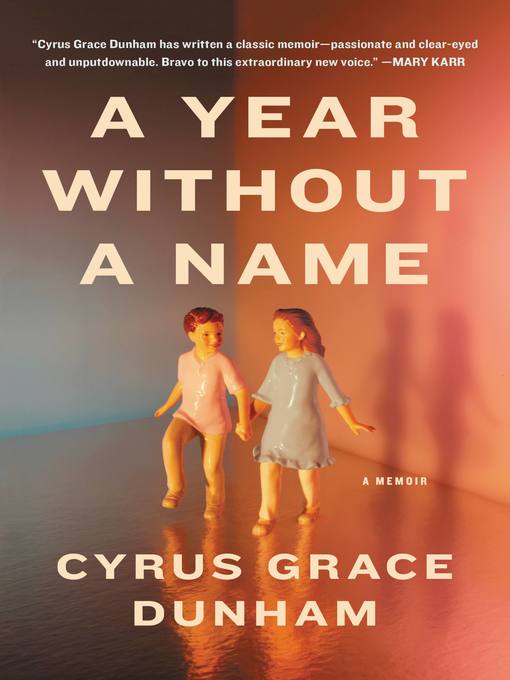
A Year Without a Name
A Memoir
- اطلاعات
- نقد و بررسی
- دیدگاه کاربران
نقد و بررسی

August 15, 2019
A journalist and activist's debut memoir about the fraught year preceding their decision to "correct my aberrated [gender] condition" and become a trans man. Dunham knew from childhood that they were different. While their parents and friends "cherished me for being a little girl," the author knew that they were "tricking" those people. Adolescence was an especially traumatic time. The author felt compelled to fit in with girls but also secretly desired them and dreamed of tying them up. Filled with self-loathing for being a "pervert," Dunham deliberately tried to make their developing body disappear through starvation diets. As they grew into adulthood, they became increasingly aware of a misalignment between their body and their sense of who they were. This dysphoria created a "bodily claustrophobia" that made Dunham seek relief through painful relationships that never satisfied. The first was with a girl who told them that she wanted them to be "her best friend, her sister, her mother" but did not want them to be her lover. Another was with a lesbian woman who introduced Dunham to polyamory and an "existential dread" that wrought havoc with their sense of self. An especially intense relationship involved a bisexual woman who made Dunham feel that they were a "fiction" with no substance. Renewing acquaintance with a trans woman who had begun the journey toward physically manifesting femininity ultimately had the most profound effect on Dunham. That relationship forced them to not only confront the clearness of their existence and modes of desire. It also inspired Dunham to overcome a deep-seated fear of transforming their body to more closely match their complex inner identity. Candid and compassionate, this book offers a view of one person's trans experience that defies categorization as much as it defies resolution. Elegant, eloquent, and deeply personal.
COPYRIGHT(2019) Kirkus Reviews, ALL RIGHTS RESERVED.

August 26, 2019
This meditative memoir by 27-year-old writer and activist Dunham, who uses they/them pronouns, provides a diaristic account of their unresolved relationship to gender and their journey to becoming Cyrus (the one boy name their parents had chosen while expecting) via a name change, hormones, and eventual top surgery. Born Grace, Dunham sensed they were different from other children around the age of five. Early on, they engaged in compulsive behavior (such as relying on magical numbers) and heard voices in their head: “a secondary, analytical voice that prevented from taking total pleasure in anything” and “the sped-up, echoing voice of Amelia Earhart, my narrative ghost, calling out to me.” After high school, Dunham lost their virginity to a girl, figuring “if I couldn’t be the boy she desired, at least I’d be the girl who understood.” The book follows the trails of other obsessive relationships— “Devotion is the closest thing I’ve known to a stable gender, insofar as our gender is a set of rules we either accept or make for ourselves,” Dunham writes—and touches on their struggle with mental illness and their difficult feelings after their sister (who along with other family members is never named) became famous. Dunham demonstrates a self-reflective awareness of their own psychology. This memoir will resonate deeply with other young people seeking gender harmony. Agent: Bill Clegg, the Clegg Agency.

September 1, 2019
Committed to uncommitment, Dunham floats in the in-between as they navigate gender and self-identity. Their book is closer to an out-of-body experience than a memoir, something that makes all the more sense as they repeat throughout that they do not feel comfortable in the body or self they have been born into. Dunham spends the brief pages contemplating their dysphoric self-image; their relation to fame via their family (Dunham's sister is writer/actress Lena); and how to find the self they have been inching towards their whole life. Dreamlike and episodic, Dunham's writing brings readers on a global tour of moments that have defined and remained with them. Their rambles seem destined towards a firm conclusion, only to stop short. By refusing a neat journey towards decision or realization, their memoir's stopping point can be seen as one of two decisions: to stand at a crossroads, possibly knowing the direction you will go but keeping it close, or to take the typically unseen third path, which blends the two before you.(Reprinted with permission of Booklist, copyright 2019, American Library Association.)




دیدگاه کاربران